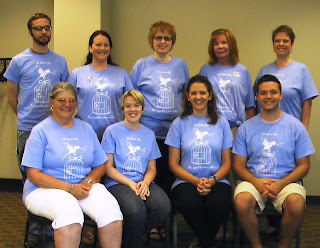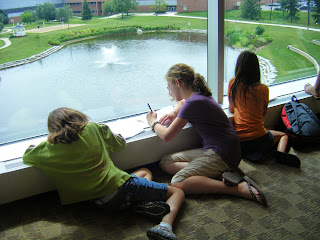Digital Tools and Techniques for Literacy Instruction
Karen Chichester
Audience:
K-12 Educators
Location:
Eastern Michigan University,
Rms 324-325 Pray-Harrold
Schedule:
June 17-19, 9 a.m. – 3 p.m.
Facilitators:
EMWP Teacher Consultants
Karen Chichester (6-12)
Michelle Vanston (K-5)
To register: bit.ly/EMWPRegistration
(case sensitive)
Registration ends on - 06/01
$95 (includes breakfast)
15 SCECHs available.
Schools have gone Google. Students bring their own devices to class. Chromebooks and iPads abound. So, how can these powerful tools be incorporated into literacy instruction? Join EMWP for three days of discussion, experimentation, collaboration and hands-on use of digital tools.
We will immerse ourselves in current technology, and examine best practices for their use in the classroom. Student artifacts, source texts, and online resources will help to guide us. By the end of our third day, participants will have new literacy resources for classroom use, a better understanding of technology best practices, and have revamped one literacy lesson or unit of study to include technology.
Be sure to bring a laptop, Chromebook, or iPad. If this is a problem or for more information contact: Karen at karen@macchyvertech.com.
Source material: Jeremy Hyler and Troy Hicks’ Create, Compose, Connect!, Troy Hicks’ Crafting Digital Writing: Composing Texts Across Media and Genres. Select online articles.
Read more!


